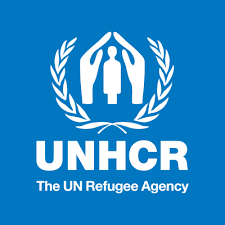The UNHCR Regional Director for West and Central Africa, Abdouraouf Gnon-Konde, on December 20, 2024, unveiled five priorities for 2025, investing upstream to prevent displacement, maintaining engagement in the Sahel, strengthening local communities, investing in sustainable solutions and fostering transparent dialogue for informed decision-making.
On December 20, 2024, Abdouraouf Gnon-Konde, the UNHCR Regional Director for West and Central Africa (UNHCR) presented five strategic recommendations for 2025 aimed at enhancing collective efforts to
protect and find solutions for forcibly displaced people in Africa.
Gnon-Konde’s first recommendation focuses on upstream investment. He emphasizes the significance of strengthening the protection space before populations are forced to flee, by improving protection services and investing in youth, with 65% under the age of 24.
According to Gnon-Konde, this would help prevent forced displacement and avoid the perils associated with irregular migration.
Secondly, he calls for continued engagement in the Sahel. He believes that ongoing commitment is vital to prevent the escalation of humanitarian and displacement crises in the region.
And with multiple crises hitting various countries, it is crucial to maintain consistent efforts to avoid dire humanitarian consequences.
Gnon-Konde also stresses the importance of localizing investments. UNHCR is implementing strategies to involve local communities more deeply in interventions.
This approach promotes social cohesion and enhances long-term stability by empowering both displaced populations and host communities to support each other.
The fourth point addresses investment in sustainable solutions. Gnon-Konde advocates for efforts to support long-term solutions for displaced persons, particularly by integrating them into development programmes, underlining the importance of enabling forcibly displaced people to reach their full potential and actively participate in rebuilding their communities.
Finally, the UNHCR Regional Director argues for dialogue among all stakeholders, including governments.
He emphasizes the need for transparent and coherent dialogue, backed by reliable and relevant data. This would allow for strategic and policy decisions to be made to ensure sustainable solutions to the challenges of forced human mobility in Africa.
AC/sf/lb/gik/APA


